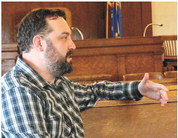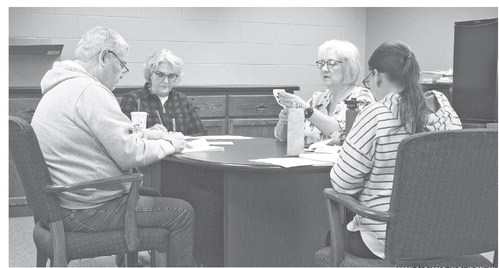Be kind
“Just walk a mile in his moccasins Before you abuse, criticize and accuse. If just for one hour, you could find a way To see through his eyes, instead of your own muse.” — “Judge Softly” by Mary T. Lathrap The lesson is not a new one. Be kind and think before you speak, because you don’t know what is going on in their private lives or what struggles they are facing. As messages go, it is as relevant today as it was when poet Mary Lathrap wrote the lines in 1895 encouraging people to think of the burdens people are carrying before casting judgment.
The sentiment goes at least as far back as the teachings of Jesus found in Luke 6:31 and Matthew 7:12 where he commands his followers 'So in everything, do to others what you would have them do to you, for this sums up the Law and the Prophets' (Matthew 7:12). It is noteworthy that in these teachings, even Jesus references back to the lessons of those who came before Him.
Somewhere along the way, we as a society have lost sight of this most fundamental of lessons.
Modern American society has turned its back on any of these teachings. To be sure, we mouth them as platitudes and hang posters of them in our Sunday school classrooms. At the same time we dismiss the victims of bullying and abuse for needing to toughen up or look down our noses at those seeking counseling or support.
Technology has played a major role in the diminishing of the people’s ability to care. We are in constant contact with one another, but seldom in any sort of meaningful communication.
Society’s embrace of social media has allowed people to put into writing things that they would never think of saying to someone’s face — painful, mean-spirited and spiteful things that are more a reflection of the demons within their own souls than helpful criticism or balanced observation.
There is a mental health crisis in America. Every day the body count of that crisis grows ever larger with suicides and attempted suicides. Each death or attempt sends out ripples like boulders dropped into a pond, rocking all those touched.
In order to combat this crisis, Americans must put down their phones and tablets and step away from the seductive glow of their computer monitors and talk and, more importantly, listen to their families, friends and neighbors.
This lesson is especially important this time of year. In the post-holiday letdown mental health issues spike as people look forward only to the cold winter months to come, when the warmth of spring seems very far away.
The lesson on how to help one another is a deceptively simple one. We must actively choose the path of kindness and understanding when interacting with those around us if we are ever to expect kindness in return. We must choose forgiveness if we are ever to find personal redemption.
We must, as individuals and a society choose to be better than we are today in order to find hope for tomorrow.




